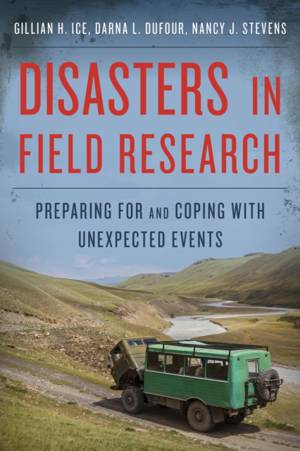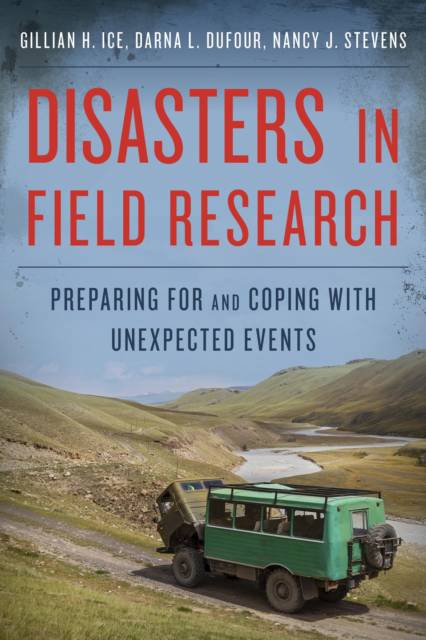
- Afhalen na 1 uur in een winkel met voorraad
- Gratis thuislevering in België vanaf € 30
- Ruim aanbod met 7 miljoen producten
- Afhalen na 1 uur in een winkel met voorraad
- Gratis thuislevering in België vanaf € 30
- Ruim aanbod met 7 miljoen producten
Zoeken
Disasters in Field Research
Preparing for and Coping with Unexpected Events
Gillian H Ice, Darna L Dufour, Nancy J Stevens
Paperback | Engels
€ 83,45
+ 166 punten
Uitvoering
Omschrijving
Disasters in Field Research is your guide to what can go wrong while conducting fieldwork--and what you can do to avoid or minimize the impact of unexpected negative events as diverse as ravenous ants, temperamental gear, debilitating illness, and unpredictable politics.
Specificaties
Betrokkenen
- Auteur(s):
- Uitgeverij:
Inhoud
- Aantal bladzijden:
- 230
- Taal:
- Engels
Eigenschappen
- Productcode (EAN):
- 9780759118027
- Verschijningsdatum:
- 23/01/2015
- Uitvoering:
- Paperback
- Formaat:
- Trade paperback (VS)
- Afmetingen:
- 157 mm x 221 mm
- Gewicht:
- 317 g

Alleen bij Standaard Boekhandel
+ 166 punten op je klantenkaart van Standaard Boekhandel
Beoordelingen
We publiceren alleen reviews die voldoen aan de voorwaarden voor reviews. Bekijk onze voorwaarden voor reviews.








